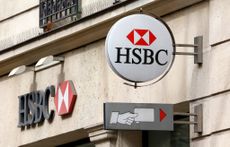NS&I interest rate boost - are the government backed savings worth it?
National Savings and Investments has increased the returns on offer to its regular savers ‒ we explain the what the new rates mean for your money


Around 1.3 million savers will pocket higher returns from their savings accounts, after National Savings & Investments (NS&I) hiked the rates it pays on several of its saving deals, but they still lag behind the best savings accounts.
Rates are being increased across accounts allowing savers easy access to their money, helpful if you want the peace of mind that comes from being able to tap into your savings pot as the cost of living continues to climb.
But, with inflation at a 40 year high, finding a real term return on your money isn’t possible.
Here we explain how rates are changing and what it means for your money.
NS&I products with interest rates increasing
The interest paid by NS&I’s easy access Direct Saver account is increasing from 0.5% to 1.2%. It can be opened with as little as £1, with interest paid on an annual basis. A £500 deposit will now earn £6 instead of £2.50.
The same increase is taking place on NS&I’s Income Bonds, which will now also pay 1.2%. These are also easy access accounts, though the interest is paid monthly, making them a more useful option for people looking to enjoy some level of regular income from their savings. However, you will need at least £500 in order to open one.
Young savers with an NS&I Junior ISA will also see their rates increase, from 1.5% to 2.2%. Again these can be opened with just £1, though Junior ISAs are subject to a smaller annual saving limit of £9,000.
Look After My Bills Newsletter
Get the best money-saving tips, tricks and deals sent straight to your inbox every week. Make sense of your money in partnership with The Money Edit.
NS&I is also increasing the rates on certain products which are not currently on sale to new savers, such as its Guaranteed Growth Bonds, Guaranteed Income Bonds and Fixed Interest Savings Certificates. As a result, people who already hold these accounts will see a greater return when the rate rises kick in on 1 August.
We have detailed all interest rate changes in the table below:
| Savings account | Previous interest rate | New interest rate (gross, from 21 July 2022) |
|---|---|---|
| Direct Saver (easy access) | 0.50% | 1.20% |
| Income Bonds (easy access) | 0.50% | 1.20% |
| Direct ISA (easy access) | 0.35% | 0.90% |
| Junior ISA | 1.50% | 2.20% |
We have detailed all upcoming interest rate changes for fixed term products in the table below:
| Savings account | Previous interest rate | New interest rate (gross, from 1 August 2022) |
|---|---|---|
| One-year Guaranteed Growth Bond | 0.10% | 1.85% |
| Two-year Guaranteed Growth Bonds | 0.15% | 2.25% |
| Three-year Guaranteed Growth Bonds | 0.40% | 2.55% |
| Five-year Guaranteed Growth Bonds | 0.55% | 2.55% |
| One-year Guaranteed Income Bonds | 0.06% | 1.80% |
| Two-year Guaranteed Income Bonds | 0.11% | 2.20% |
| Three-year Guaranteed Income Bonds | 0.36% | 2.50% |
| Five-year Guaranteed Income Bonds | 0.51% | 2.50% |
| Two-year Fixed Interest Savings Certificates | 1.30% | 2.15% |
| Five-year Fixed Interest Savings Certificates | 1.90% | 2.45% |
How do NS&I interest rates compare to other savings accounts?
While the interest rate increases mean NS&I deals are more competitive, they aren’t market-leading.
If you’re looking for a better return from an easy access account for example you can get 1.56% from Virgin Money for savings up to £25,000
Similarly, if you’re hunting for the best possible rate on a cash ISA then you can get 1.5% from Newcastle Building Society’s Triple Access ISA. As the name suggests, you can only access cash from this account three times per year before the rate falls, so it won’t be suitable if you regularly dip into your ISA pot.
Sarah Coles, Senior Personal Finance Analyst at Hargreaves Lansdown points out that NS&I is given a target by the Treasury for how much money it needs to bring in each year from savers. She adds: “It’s still not the best on the market, but with a net financing target of just £6 billion this year, it doesn’t need to be in order to attract the cash it needs.”
What about NS&I Premium Bonds?
NS&I’s most popular savings account is the Premium Bond. In fact, it’s the nation’s favourite savings account, with bonds being held by around 21 million people across the UK.
Premium Bonds are different from other forms of savings account, in that you don’t actually earn interest on them. Instead you are entered into a monthly draw, with the chance of winning cash prizes of up to £1 million.
Back in May NS&I increased the prize rate on Premium Bonds, meaning more savers are in with a chance of winning a prize.
Why save with NS&I?
NS&I is an unusual savings provider because it’s backed by the government, meaning every penny you save in one of its accounts is protected.
This isn’t the case with banks and building societies. They are signed up to the Financial Services Compensation Scheme (FSCS), which protects the first £85,000 you save with each financial institution should a bank go bust.
This limit applies to the overall banking group, rather than individual banking brands ‒ so if you deposit £85,000, any other money saved within the same banking group is not protected.
For example Lloyds Banking Group owns high street banks Lloyds Bank, Halifax and Bank of Scotland plus other firms.
If you have significant savings, and you want to enjoy full protection, then you’ll need to spread the money across different accounts with different banks. But, the appeal of saving with NS&I is that you can enjoy that full protection all from a single account.
Coles notes that for the vast majority of savers, all of their money is protected anyway. “However, for some people, this doesn’t give them the same sense of security as knowing they have the Treasury guarantee. It means they value it highly enough to accept that they may not get the top rate on the market.”
There is a downside to consider, though. Because of the way that NS&I is funded with taxpayer money, it doesn’t tend to offer market-leading rates. At their best NS&I’s deals are competitive, rather than table topping.

John Fitzsimons has been writing about finance since 2007, and is a former editor of Mortgage Solutions and loveMONEY. Since going freelance in 2016 he has written for publications including The Sunday Times, The Mirror, The Sun, The Daily Mail and Forbes, and is committed to helping readers make more informed decisions about their money.
-
 Three energy firms pay £8m in switching compensation - has your provider paid out?
Three energy firms pay £8m in switching compensation - has your provider paid out?More than 100,000 customers have received compensation after changing providers, but is now a good time to switch energy suppliers?
By Tom Higgins Published
-
 Save £300 on your supermarket shop with cashback accounts
Save £300 on your supermarket shop with cashback accountsBanks, credit card companies and cashback sites are all offering cashback on your supermarket shop, but can you use them all to max out your savings?
By Vaishali Varu Published
-
 Save £300 on your supermarket shop with cashback accounts
Save £300 on your supermarket shop with cashback accountsBanks, credit card companies and cashback sites are all offering cashback on your supermarket shop, but can you use them all to max out your savings?
By Vaishali Varu Published
-
 More than 150,000 grandparents missing out on £1,500 state pension uplift: how to claim
More than 150,000 grandparents missing out on £1,500 state pension uplift: how to claimGrandparents who provide childcare by looking after their grandchildren could be missing out on valuable state pension money worth thousands. We look at how much extra you could get and if you’re eligible
By Stephanie Baxter Published
-
 Can you reclaim bank charges?
Can you reclaim bank charges?If you’ve incurred bank charges over the years, these can add up to hundreds of pounds – but can you get your money back? We look at whether you can make a claim and how to do it
By Stephanie Baxter Published
-
 HSBC extends deadline for customers to secure bigger interest-free overdraft
HSBC extends deadline for customers to secure bigger interest-free overdraftHSBC customers now have until 10 May to increase their interest-free overdraft limit from £25 to £500. First Direct, Lloyds and Nationwide also offer similar support. We explain everything you need to know
By Katie Binns Last updated
-
 New banking hub locations revealed - is there one near you?
New banking hub locations revealed - is there one near you?The rise of banking hubs is in response to a stream of local branch closes. With more planned to launch soon, we look at what services they offer and where you can find one
By Stephanie Baxter Published
-
 April 2023 premium bond winners revealed - are you a millionaire?
April 2023 premium bond winners revealed - are you a millionaire?Two premium bond holders have won £1 million each this month and there are many other prizes for another 5,018,742 winners in April. We look at how to find out if you’ve won
By Stephanie Baxter Published
-
 State pension underpayment warning - have you been underpaid and eligible for more than £11,500?
State pension underpayment warning - have you been underpaid and eligible for more than £11,500?Thousands of retirees, mainly women, are still owed money by the government after being underpaid their state pension. We explain what you need to know
By Katie Binns Last updated
-
 State pension age rise to 68 delayed - what it means for your retirement
State pension age rise to 68 delayed - what it means for your retirementThe state pension age will stay at current levels for longer than expected after the government today confirmed that it has shelved plans to increase it to 68 by the late 2030s. We explain what it all means for you
By Stephanie Baxter Last updated